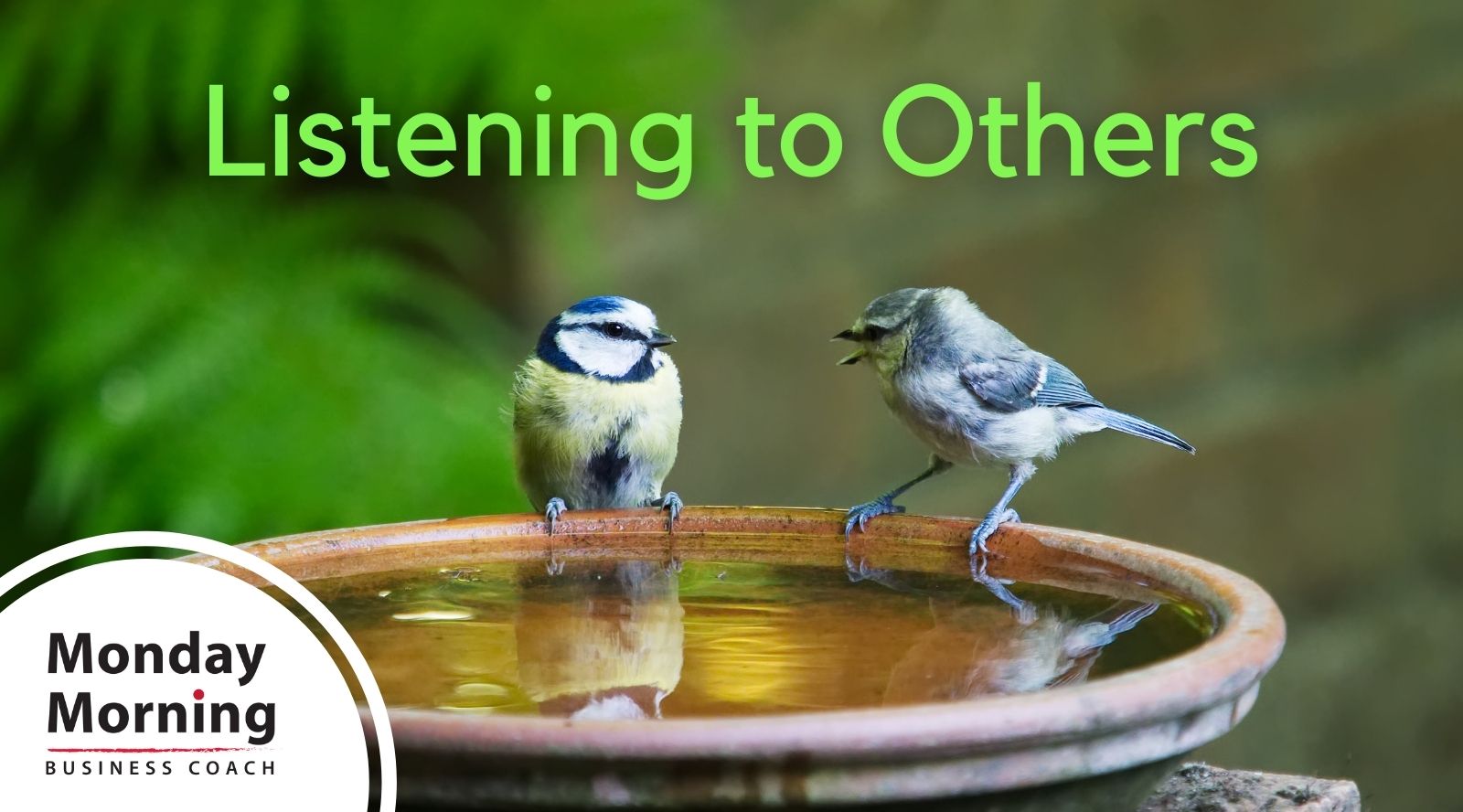As you grow in your ability to listen to yourself, you’ll have greater clarity in listening to others.
If you haven’t done so, take a look at our post, Listen. Just Listen. In it, we offer some ways to think about listening to yourself.
The ability to listen to yourself matters when you’re listening to others. If you’re unable to distinguish your truth from all the rules we learn as we grow, it may be hard to listen to others without imposing those rules on them.
Remember, our brains are quick to go to questions like what does this mean for me? What do I want to say next? How do I convince them they’re wrong?
To become a powerful listener, it’s important to honor that your brain is doing what it is programmed to do – keep you safe.
As we’ve said before, our brains are using 80% of our energy looking for danger. So, it’s important to quiet your mind enough to be able to hear what’s being said versus looking for what’s wrong. Once you’ve quieted your mind, even just a little, you can be more open-minded, present, interested in their experience, thoughts, and feelings, and able to fully take in what they’re saying.
Experiment with some of these suggestions and see what helps you listen deeply and attentively:
Start with you.
Are you in a place where you can set aside all the busyness in your own mind and listen to the other person? It’s important to know what’s going on inside of you.
If you’re stressed and know you’ll be reactive or defensive, or just can’t listen without fixing, think about naming it.
You could say something like “I really want to hear your experience and I’m stretched thin right now. I’m not sure I can give you my full attention. Can we meet later or tomorrow?”
Get curious.
Whenever you can set aside your own certainty and judgment and step into being curious, you’ll be a better listener.
As you start to listen, interrupt your tendency to consider what you’ll say next. A moment of silence while you consider what you’ve heard can be powerful.
Then perhaps say gently, “say more.” And continue to listen.
If it’s your goal to become a better listener, identify ahead of time, the 3 – 5 questions that feel natural to you that will invite deeper sharing.
Try some of these suggestions to see what feels right and authentic to you when you say them:
- What’s most important to you in this situation?
- What’s going on that gives you pause?
- Can you share more about your experience? Your concern? Your excitement?
- What do you think you’d like to do? To try? To consider?
- How would you respond if you felt safe in this situation? Powerful? Influential? Respected?
Reflect.
Share what you’re hearing, as a question versus a fact.
Example: “Is this what you’re saying?” versus “You’re saying this, and that means…”
Often, being a mirror to an individual or a group by listening and reflecting, helps them to see and understand themselves more deeply.
Think about a time when someone reflected something back to you that helped you think or see in a whole new way.
This week, start to experiment with deepening your ability to listen to yourself and others. We’d love to know what you try and what’s worked for you.
If you’d like support
in growing your listening skills
contact us today
about Executive Coaching

